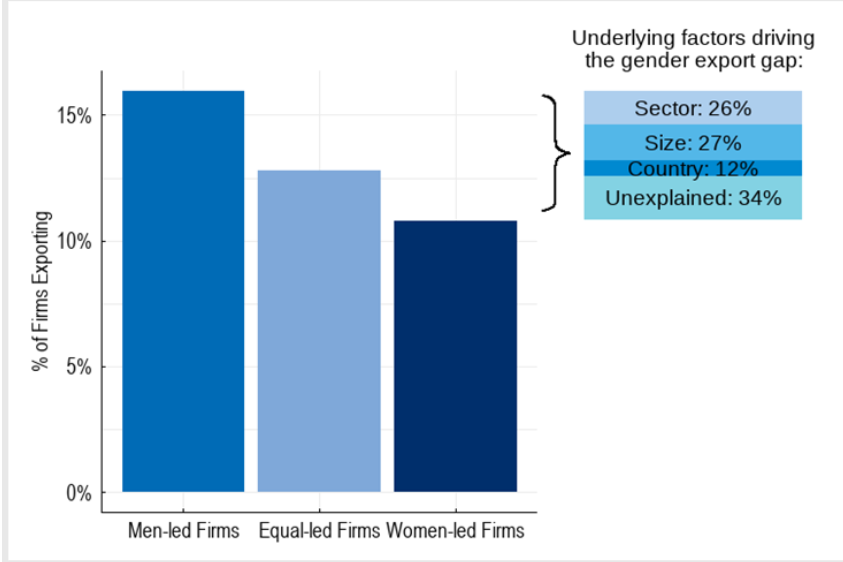That is, in their roles as workers, business leaders, and consumers. Trade-related jobs in OECD countries are better paid and higher skilled. However, women are less likely to work in jobs that are directly engaged in trade. This is partly because women tend to work more in services, and services are less traded than goods. Even within services, women work in less-traded industries such as health, education and public administration. Moreover, there is evidence in some countries that gender wage gaps are higher in better-paying jobs engaged in trade, which suggests that even when women work in jobs that are engaged in trade, they benefit less from the higher wages offered by those jobs.
Trade and gender
The issue of gender equality has risen to the top of public debate in many countries. Women are paid less than men for equal work in every country; women are less represented in Parliaments and on most corporate boards; and women systematically do more unpaid work than men. Women are also less represented in trade. While much focus is on labour, social, and other domestic policies as first order tools to improve women’s economic empowerment, renewed attention is being paid to how trade can impact the economic opportunities available to both men and women.



